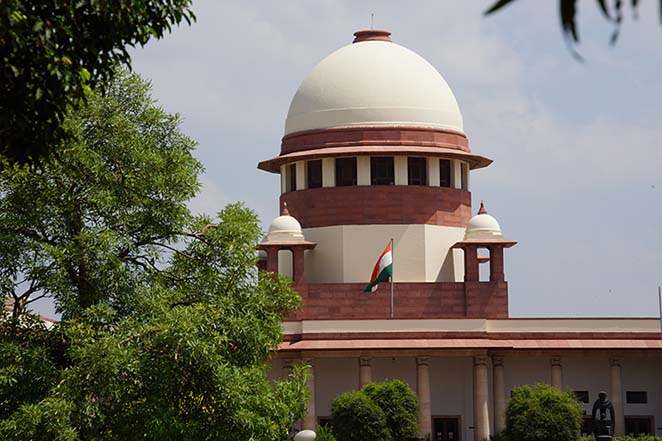 English
English

The apex court had, on March 20, introduced the provision of anticipatory bail in the act while directing that there would be no automatic arrest on any complaint filed under the law.

New Delhi: After the country's top court issued a verdict on the SC/ST Protection act, the Kerala government on Saturday filed a review petition in Supreme Court to highlight the issue of rising insecurity among the SC/ST population who are on the receiving end of serious crimes being committed.
The apex court had, on March 20, introduced the provision of anticipatory bail in the act while directing that there would be no automatic arrest on any complaint filed under the law.
Also Read: Why ST/SC Act case was not presented properly?, says Congress
The Kerala government in its petition said that the "judgment / order dated 20.03.2018 passed by this Hon'ble Court has gone against the provisions of the Atrocities Act and has wide ramifications as the same has created insecurity among SC/ST people."
"Despite various measures to improve the socioeconomic conditions of the Scheduled Castes and the Scheduled Tribes, they remain vulnerable. They are denied number of civil rights. They are subjected to various offences, indignities, humiliations and harassment," further read the petition.
The petition criticised the government's inability to stop "rape of women belonging to the Scheduled Castes and the Scheduled Tribes".
Also Read: SC/ST act: Ravi Shankar Prasad confirms filing review petition
Quoting data from the National Crime Records Bureau the petition also pointed out that there were 47,338 cases of atrocities were registered under the Prevention of Atrocities (PoA) Act, 1989, reported on 2016.
On April 2 a Bharat Bandh was called to protest against Supreme Court's ruling on the SC/ST Prevention of Atrocities Act. The Dalit bodies claimed that March 20 order diluted the Act, which seeks protection of marginalised communities against discrimination and atrocities. (ANI)